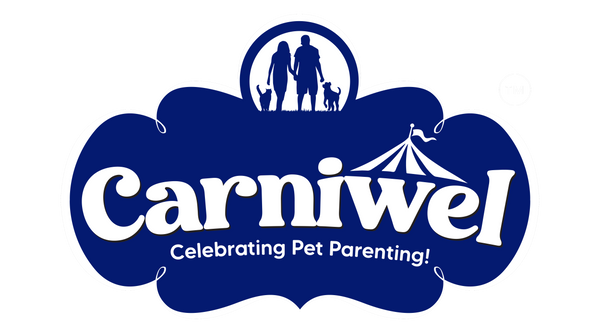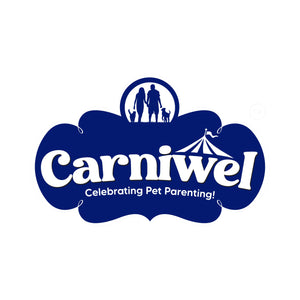Understanding pet nutrition is crucial for keeping your furry friend happy and healthy. When it comes to food for dogs, especially small breeds, protein plays a starring role. But with so much information swirling around, figuring out how much protein your dog needs can be confusing.
Let’s dive into the world of canine protein, exploring its importance, the best sources for small breed dogs, and the ideal daily intake.
Protein: The Building Block of a Healthy Dog
Protein is a vital nutrient made up of amino acids, the building blocks for tissues, muscles, and organs. It's essential for growth, repair, and overall well-being. While dogs are considered omnivores, meaning they can utilize both plant and animal protein, high-quality animal sources often provide a more complete amino acid profile.
However, remember – balance is key! While protein is crucial, dogs also need carbs and healthy fats for a complete diet. Carniwel offers a variety of dry food options, including fresh chicken & veg superfoods, catering to both meat-loving pups and those with dietary sensitivities.
While protein is a cornerstone of a healthy canine diet, it's not the only nutrient to consider. Zinc plays a crucial role in ensuring your dog's protein is utilized effectively. When choosing a protein source for your dog, look for options that are naturally rich in zinc. Animal proteins like lamb, and poultry are generally good sources of this essential mineral.
Small Breeds, Big Needs: Choosing the Right Protein Source
Small breed dogs have unique nutritional needs compared to their larger counterparts. Their higher metabolic rates often call for a diet with a slightly higher protein content. Additionally, their smaller jaw size might necessitate smaller kibble pieces for easier chewing.
Carniwel recognizes these differences and tailors its food formulas accordingly. Here's what to look for in a protein source for your small breed dog:
- High Digestibility: Smaller dogs have shorter digestive tracts, so easily digestible protein is key. Look for sources like chicken, salmon, or lamb known for their high digestibility. Carniwel's fresh chicken & veg superfoods formula utilizes chicken for this very reason.
- Quality Matters: Prioritize premium protein sources raised humanely and free from artificial ingredients or fillers.
Bonus Tip: Small breeds are prone to weight gain, so consider opting for a formula with moderate protein content along with healthy fats and complex carbohydrates for sustained energy.
Finding the Protein Sweet Spot: Daily Requirements
Now, let's get down to the nitty-gritty: how much protein does your dog actually need? Protein requirements vary depending on several factors:
- Age: Growing puppies require more protein for development compared to adult dogs.
- Activity Level: Active dogs burn more calories and may need a higher protein intake.
- Overall Health: Certain health conditions might necessitate adjustments in protein needs.
Here's a general guideline:
- Healthy Adult Dogs: A minimum of 18-25% of their daily calories should come from protein.
- Puppies: Daily protein minimums are higher, typically around 29%, to support growth (20-25% of daily calories).
Remember, these are just guidelines. Consulting your veterinarian for a personalized recommendation based on your dog's specific needs is always best.
Here's a handy trick: One gram of protein per pound of ideal body weight (not current weight if overweight) is a good starting point. So, a 10-pound dog would require around 10 grams of protein daily.
Factors to Consider for Indian Dogs
- Breed: Indian breeds like the Indian Spitz, Mudhol Hound, or Rajapalayam Hound may have different nutritional needs compared to Western breeds. Their ancestral diets and activity levels can influence their protein requirements.
- Climate: India's diverse climate can impact a dog's metabolism and energy expenditure. Dogs living in hotter regions might require slightly higher protein intake to maintain body temperature and support energy levels.
- Lifestyle: Dogs living in urban environments might have less physical activity compared to dogs in rural areas. This can affect their protein needs.
- Health Conditions: Dogs with underlying health issues or specific dietary requirements may need adjusted protein levels. Consult your veterinarian for personalized advice.
The Bottom Line: Quality Protein for a Happy Pup
Protein is a cornerstone of a healthy canine diet, especially for small breeds. Remember, prioritize high-quality, easily digestible protein sources. Carniwel offers a variety of delicious formulas, like the fresh chicken & veg superfoods option (100% vegetarian & GMO-free!), catering to various dietary needs.
When it comes to quantity, consult your veterinarian for personalized recommendations based on your dog's age, activity level, and overall health. By providing your small breed canine companion with the right amount of high-quality protein, you're setting them up for a long and happy life!



 https://carniwel.com/pages/about-us
https://carniwel.com/pages/about-us